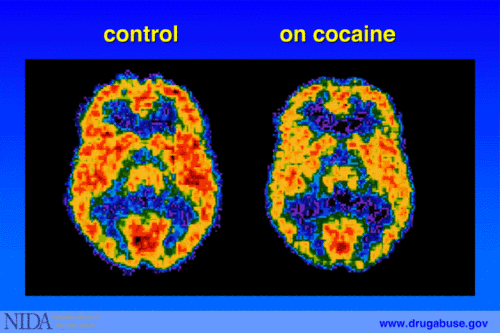
How to quit cocaine and crack
Neuroscience proves how rewards stimulate the brain to help you quit successfully
Cocaine is one of the hardest drugs to quit, and it’s one that traditional rehab clinics have struggled to treat. If you’re wondering how to stop using cocaine and crack, if you have tried cocaine rehab treatment without success, or if you know someone who needs help with cocaine addiction, Affect’s digital outpatient treatment program works. You can quit using cocaine and crack without going to an outpatient, inpatient or residential rehab facility.
If you’re using cocaine and want to take control of your life again, Affect is here to help. We have a revolutionary program that was specifically designed for people who use stimulants like cocaine and crack that comes to you through a smartphone app. Affect’s recovery program ranks in the top 1% of all addiction treatment providers and the program has proven to be twice as effective as traditional treatment, allowing our members to quit using cocaine and start building healthy, happy lives as they form new habits.

Affect’s app puts a telehealth treatment program in your pocket
Gamification and rewards activate the areas of your brain that have become dependent on cocaine
Is Cocaine addiction dangerous?
Cocaine is a powerful stimulant and highly addictive drug that can have serious health consequences for people who use it. Even one low dose can cause structural brain damage.
Cocaine affects your heart and blood vessels. Using it can lead to high blood pressure, irregular heartbeats, and even heart attacks. This can happen to even young people who are seemingly healthy.
The way people take cocaine also does serious damage to their bodies. Smoking crack or freebasing cocaine hurts your mouth, throat, and lungs as you inhale it. Snorting or sniffing cocaine destroys tissue in your nasal passages. These lead to risk for respiratory infections and have long term consequences. Injecting cocaine exposes risks to getting HIV/AIDS or hepatitis or other life-threatening conditions.

Cocaine doesn’t just affect your body; it affects your mind too. It can lead to anxiety, paranoia, and even make you more prone to depression. If you’re already dealing with personal challenges or have stress at work or school, cocaine can make things worse and harm your emotional well-being. Cocaine also affects your memory and ability to focus. Even a small dose affects brain function.
Cocaine impairs your judgment and ability to make decisions, which can have very negative consequences. You can engage in risky behaviors and unsafe activities you wouldn’t normally do that cause bodily harm or land you in jail. Cocaine is expensive, and addicts get into financial trouble very quickly.
Increasingly, street cocaine and meth are laced with fentanyl, which is lethal in very small quantities. Just one dose can kill someone in a matter of minutes. This combination of stimulants and fentanyl is now the number one cause of fatal overdoses in the United States.
Why is Cocaine addictive?
Cocaine is addictive because it rewires your brain’s reward system where chemicals are produced that make you feel good. When you take Cocaine, it releases a flood of a chemical called dopamine, which makes you feel great. Your brain loves this feeling and wants more of it.
The problem is that after using cocaine for a while, your brain gets used to it. So, you need more and more cocaine to feel as good as you did before. This is called building up a tolerance.
If you try to stop, your brain is no longer producing dopamine on its own so you feel sad, tired, and anxious without taking cocaine. These feelings are called withdrawal, and they make you want to use again just to make them go away.
Cocaine changes your brain’s wiring and has long term effects in how you think and feel. And cocaine can cause serious brain damage.
Do I need to go to rehab to stop using cocaine?
“Rehab” or “rehabilitation” is short-hand for a variety of traditional treatment options, usually offered in physical locations that range from residential hospitals to outpatient clinics with daily scheduled sessions. While these types of programs offer intensive care, they can be difficult for people to attend, due to work, childcare, transportation, or financial limitations.
People generally do not need to go to “detox” for cocaine addiction. Stimulant use does not result in dangerous physical withdrawal symptoms the way opioids and alcohol do that require supervised withdrawal management in a hospital or rehab facility.
Affect was designed to make treatment accessible to anyone, anywhere, without going to rehab. Our program is entirely digital and delivered through a smartphone app, which means you can do it from home or work, in the city or in the country. We accept both employer and Medicaid insurance, so you don’t have to worry about high healthcare costs. It’s convenient and cost-effective, but it’s also complete, ensuring you get care that is supported by science and is customized for your needs.

What’s the best way to quit using cocaine?
It’s very, very hard to quit using cocaine on your own. Cocaine is one of the most addictive of all drugs. It hooks you fast and quickly changes your brain to make you completely dependent on it. The cravings are intense and the withdrawal is harsh. It takes professional help to stop using cocaine for good, and finally there is help that works.
Affect’s program was designed specifically to treat stimulant addictions like cocaine. It uses research-proven techniques and was created by some of the best researchers and scientists in the field of addiction treatment.
Since cocaine rewires the brain’s rewards system, research has proven that the best way to beat cocaine addiction is to stimulate the brain’s system in other ways. The most effective method is by winning rewards for doing things that help you quit. This method is known as “contingency management.”

To understand how it works, think about how you win points and beat levels in a game and how good it feels each time you do. The more you win, the more you want to keep playing. And even when it gets hard to beat a level, you keep going until you get that victory. Contingency management turns your recovery into a kind of game you don’t want to stop playing. Along the way, you start developing new healthy habits.
It is very common to relapse while recovering from cocaine addiction, and this is why traditional rehab clinics with strict abstinence requirements have failed to treat it. Research shows that gradually reducing use over time works better for stimulants like meth and cocaine, a method addiction specialists call “harm reduction.”
Traditional methods developed primarily for alcohol and opioid addiction use certain medications to help people gradually reduce their dependency. But, there are no FDA-approved medications for the treatment of cocaine addiction. There are medications that Affect’s medical team can prescribe to help reduce depression, anxiety, and also manage cravings where it’s appropriate.
Does Affect’s program work to beat cocaine addiction?
Yes it does. Affect’s digital program is in the 1% of all treatment providers and data shows our program to be twice as effective as traditional methods to treat cocaine addiction and help people quit. Our members praise the program for being able to help them when nothing else has worked.
Our members dramatically increase their number of sober days in just the first month. Their energy and health improves and their brains start to recover. With the help of licensed addiction counselors, members explore the roots of their addiction and learn how to identify and control triggers without feeling the need to use cocaine. As withdrawal symptoms fade and healthy habits are formed, our members rebuild their lives as they recover from cocaine. You can read what they have to say about our program.
Affect’s program is also unique in supporting “whole recovery” of our members’ lives. Care teams include advocates who provide members with support for housing, employment, healthcare and more.
Are you ready to stop using cocaine? Reach out and talk to us to find out more, or download the app and try it yourself.
Just tell us a little bit about yourself and we’ll get right back to you




